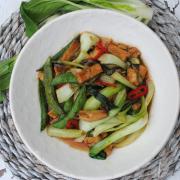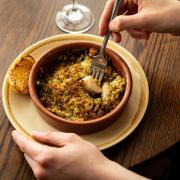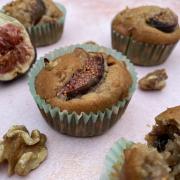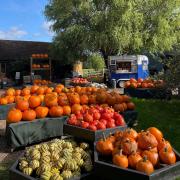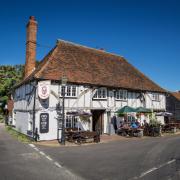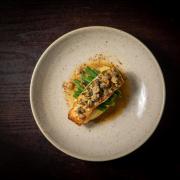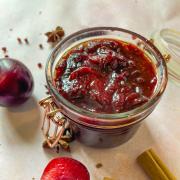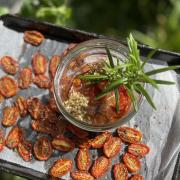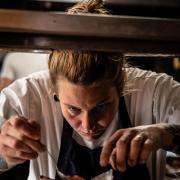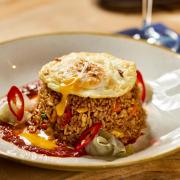‘Mackeson Milk Stout’ - in the middle years of the 20th century, it was a household name, but how many people now remember that it was first brewed here in Kent, in Hythe, and that the Mackeson brewery there continued production until 1968?
Two Mackeson brothers, originally from Deal, bought the business in 1801. Harry and William were the sons of a mariner-turned-wine-merchant and lived at what has since become the Ship Inn in Middle Street, Deal. Harry had helped his father in the wine trade, but William had an unusual first career, as a man-midwife. This was a controversial choice and not always a popular one outside the metropolis. Brewing would have been a safer option.
Harry and William extended the brewery and built up a good clientele. All Hythe tradesmen were benefitting from the influx of military men building fortifications in the area against an expected invasion attempt by Napoleon. The brothers acquired several inns with the brewery and bought more. By 1821 they owned 20 and the business was valued at £44,000 [well over £2m today, according to the National Archives' historic currency converter]. The future must have looked rosy.

Things didn’t work out that way. William, it turned out, was a financial disaster area and when he died suddenly in 1821 left his widow and nine children destitute. Harry stepped in and ensured that they were taken care of and the boys educated at his expense. Since his father’s death, he had become head of the Mackeson family and also had a number of impecunious and improvident relatives, including his own siblings and half-siblings, who plagued him for help.
John Mackeson, a younger brother, having abandoned a career with the East India Company to marry an heiress, took control of the Jamaican coffee plantation and its 120 slaves that were part of her marriage settlement. Within seven years he was seriously in debt, which he blamed variously on the abolition of the slave trade and on Harry.
Catherine Mackeson, Harry’s half-sister, twice married men who were unable to manage their finances and turned to Harry to help her ward off their frequent crises. Her brother Philip, the youngest Mackeson, also joined the East India Company after an education at the King’s School in Canterbury. He took a mistress, an Indian woman, who gave him two children before he died of cholera. He also died in debt and entrusted the upbringing of his children to Harry.

All through the 1820s and ‘30s, Harry was under huge commercial pressures. The local market for beer had declined. The military presence slumped as the French threat was eradicated. England was also in the grip of an economic depression. All of Harry’s five children including his daughters, worked to keep the brewery afloat.
Despite his struggles, Henry passed on to his only son, Henry Bean Mackeson, a thriving concern when he died in 1860.
Henry Bean was one of those Victorians usually described as ‘indefatigable’. He was a geologist, an archaeologist, town councillor, mayor of Hythe nine times, churchwarden, a breeder of fancy chickens (Orpingtons), a meteorologist, a naturalist, an historian, an archivist, a railway enthusiast, a horticulturalist – the list goes on. He was also no mean businessman and, like his father, passed a healthy concern onto his sons on his death in 1894.

The sons were another Henry and George. Both had received a gentlemanly education at Uppingham School, and had a different view of the business. They put some distance between their domestic and working lives, quite literally. George took his bride to a large house with extensive land up the hill in Hythe; Henry and his wife went further, to a smart new house in Folkestone
They embarked on a programme of modernisation, investment and expansion. They bought land, they built hotels, they created a new malthouse in Canterbury, complete with its own railway sidings. In Hythe, the brewery was upgraded with the latest technology and a telephone was installed in the office (number: Hythe 7).
In 1900, the family concern became a limited company, Mackeson & Co. Ltd. The new status separated the Mackesons’ personal assets and liabilities from those of the business and made it easier to attract investment. Henry and George were, however, joint directors.
Nine years later, one of them, or perhaps their brewer, got interested in the idea of milk beer. It was not an entirely new idea, but previous attempts to produce an acceptable brew made with milk-derived lactose had been unsuccessful. However, in 1909 William James Melhuish registered a new invention with the Patent Office. It was for a thick, dark stout with very low carbonation. He then immediately assigned his rights to the Mackesons and in return, they employed him to act as their consulting analyst, paying him a salary of one-third of their net profits on the product.
Milk Stout was launched with a booklet which claimed that the beverage gave drinkers ‘energy, stopped distension, fulness, indigestion and headache, prevented rheumatism and was ideal for nursing mothers and invalids.’ The claims were entirely unproven, but like all brewers, the Mackesons were in competition with a powerful Temperance movement, and they did not have to worry about an Advertising Standards Authority.

Milk Stout was a runaway success and demand soon outstripped the brewery’s capacity to supply it. The Mackesons sold licences to other breweries to make and sell the product under their own trade names.
After struggling through the grim years of World War 1, Henry and George made the decision, in 1920, to sell the business. Perhaps they did not want to die ‘in harness’ as their forefathers had done and there was no obvious heir to take the company on. Henry’s sons (George was childless) were destined for the army. Henry had already moved to Littlebourne, where he lived the life of a country gentleman. George now devoted himself to the church in Hythe and to cricket.
The brewery was acquired by Whitbread, which kept the Mackeson name, but in 1968 the decision was made to close it. The buildings were demolished.
Milk Stout, however, lived on, though brewed elsewhere. Right through to the end of World War 2 it was advertised, in a suitably vague way, as being a ‘healthy’ beverage. Later, the emphasis shifted and women drinkers were targeted. One advert showed a glamorous woman relaxing in an armchair with a glass of Mackeson Stout and the claim that the beverage was ‘a heartening drink indeed when the long day’s housework is over’. The woman in question wore high heels and a glamorous dress, her hair immaculately coiffed, probably not the look achieved by most housewives after a day’s cleaning without modern labour-saving equipment.
But the ‘healthy’ reputation lingered, encouraged by the 1960s TV advertisements in which the character actor Bernard Miles declaimed, in a broad 'Mummerset' brogue, that the stout ‘looks good, tastes good and by golly, it does you good’. Well into the 1970s, nursing mothers in NHS hospitals were offered a nightly glass of Mackeson Stout, which, we were told, contained lots of iron and vitamins. Whatever the truth of this, it was certainly a big improvement on NHS cocoa!
Anne Petrie's book Not Just Milk Stout: the Mackeson Family and Their Hythe Brewery is published by The History Press (thehistorypress.co.uk) at £14.99 and is available from all good booksellers





